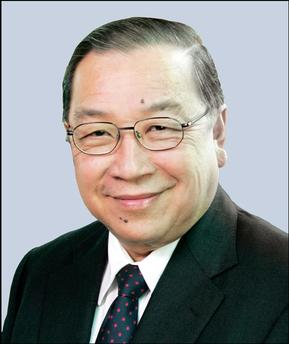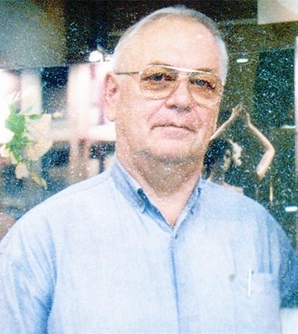Related Research Articles
In United States law, an Alford plea, also called a Kennedy plea in West Virginia, an Alford guilty plea, and the Alford doctrine, is a guilty plea in criminal court, whereby a defendant in a criminal case does not admit to the criminal act and asserts innocence, but accepts imposition of a sentence. This plea is allowed even if the evidence to be presented by the prosecution would be likely to persuade a judge or jury to find the defendant guilty beyond a reasonable doubt. This can be caused by circumstantial evidence and testimony favoring the prosecution, and difficulty finding evidence and witnesses that would aid the defense.
A plea bargain, also known as a plea agreement or plea deal, is a legal arrangement in criminal law where the defendant agrees to plead guilty or no contest to a charge in exchange for concessions from the prosecutor. These concessions can include a reduction in the severity of the charges, the dismissal of some charges, or a more lenient sentencing recommendation. Plea bargaining serves as a mechanism to expedite the resolution of criminal cases, allowing both the prosecution and the defense to avoid the time, expense, and uncertainty of a trial. It is a prevalent practice in the United States, where it resolves the vast majority of criminal cases, and has been adopted in various forms in other legal systems worldwide.
In law, a plea is a defendant's response to a criminal charge. A defendant may plead guilty or not guilty. Depending on jurisdiction, additional pleas may be available, including nolo contendere, no case to answer, or an Alford plea.

Criminal justice is the delivery of justice to those who have been accused of committing crimes. The criminal justice system is a series of government agencies and institutions. Goals include the rehabilitation of offenders, preventing other crimes, and moral support for victims. The primary institutions of the criminal justice system are the police, prosecution and defense lawyers, the courts and the prisons system.

The judicial system of Israel consists of secular courts and religious courts. The law courts constitute a separate and independent unit of Israel's Ministry of Justice. The system is headed by the President of the Supreme Court and the Minister of Justice.

The High Court of Singapore is the lower division of the Supreme Court of Singapore, the upper division being the Court of Appeal. The High Court consists of the chief justice and the judges of the High Court. Judicial Commissioners are often appointed to assist with the Court's caseload. There are two specialist commercial courts, the Admiralty Court and the Intellectual Property Court, and a number of judges are designated to hear arbitration-related matters. In 2015, the Singapore International Commercial Court was established as part of the Supreme Court of Singapore, and is a division of the High Court. The other divisions of the high court are the General Division, the Appellate Division, and the Family Division. The seat of the High Court is the Supreme Court Building.

Lai Kew Chai was a Singaporean judge and the longest-serving member of the Supreme Court Bench, having served for almost 25 years as a Judge.
Capital punishment in Malaysia is used as a penalty within its legal system for various crimes. There are currently 27 capital crimes in Malaysia, including murder, drug trafficking, treason, acts of terrorism, waging war against the Yang di-Pertuan Agong, and, since 2003, rape resulting in death, or the rape of a child. Executions are carried out by hanging. Capital punishment was mandatory for 11 crimes for many years. In October 2018, the government imposed a moratorium on all executions with a view to repeal the death penalty altogether, before it changed its stance and agreed to keep the death penalty but would make it discretionary.

Steven Chong Horng Siong is a Singaporean judge who has been serving as a judge of the Court of Appeal of Singapore since 2017. He had previously served as the seventh attorney-general of Singapore between 2012 and 2014, and a judge of the High Court of Singapore between 2010 and 2012, and again between 2014 and 2017.
Port Klang Free Zone (PKFZ) is a 1,000-acre (4.0 km2) commercial and industrial zone established in 2004 in Malaysia. It is a regional distribution hub as well as a trade and logistics centre offering extensive distribution and manufacturing facilities. It is located along the Straits of Malacca, Port Klang, Klang, Malaysia. The PKFZ was previously managed by Jebel Ali Free Zone Authority (JAFZA). However, it was taken over and rebranded by a local company in 2007. The PKFZ offers various investment incentives to investors such as tax exemptions on most products and services, subsidies, allowing wholly foreign owned enterprises, free repatriation of capital and profits and incentives for research and development, training and export.

Caning is used as a form of corporal punishment in Malaysia. It can be divided into at least four contexts: judicial/prison, school, domestic, and sharia/syariah. Of these, the first is largely a legacy of British colonial rule in the territories that are now part of Malaysia, particularly Malaya.
The Anwar Ibrahim sodomy trials are a source of considerable political controversy in Malaysia. The first trial was held in 1998, and resulted in former Deputy Prime Minister Anwar Ibrahim being convicted, and given a nine-year prison sentence. This verdict was overturned in 2004, resulting in Anwar's release from prison.
Plea bargaining in the United States is very common; the vast majority of criminal cases in the United States are settled by plea bargain rather than by a jury trial. They have also been increasing in frequency—they rose from 84% of federal cases in 1984 to 94% by 2001. Plea bargains are subject to the approval of the court, and different States and jurisdictions have different rules. Game theory has been used to analyze the plea bargaining decision.
Following the common law system introduced into Hong Kong when it became a Crown colony, Hong Kong's criminal procedural law and the underlying principles are very similar to the one in the UK. Like other common law jurisdictions, Hong Kong follows the principle of presumption of innocence. This principle penetrates the whole system of Hong Kong's criminal procedure and criminal law. Viscount Sankey once described this principle as a 'golden thread'. Therefore, knowing this principle is vital for understanding the criminal procedures practised in Hong Kong.
Datuk Anthony Kevin Morais was a Deputy Public Prosecutor for the Attorney General's Chambers of Malaysia and Malaysian Anti-Corruption Commission (MACC).
Eugene Singarajah Thuraisingam is a Singaporean lawyer. He is the founder of the law firm Eugene Thuraisingam LLP, a law firm that specialises in international arbitration and criminal and commercial litigation. He is also known for his advocacy of human rights and for his opposition of the death penalty in Singapore. In relation to his domestic practice as a criminal lawyer in Singapore, Thuraisingam has defended many alleged suspects in high profile criminal trials, including those who were dissidents and critics of the government of Singapore. For his legal service for many defendants in the court of Singapore, Doyles Guide has named him as a leading criminal defence lawyer in Singapore in 2020.

The 2010 Kallang slashings refer to a series of four robberies committed by a group of four Malaysians from Sarawak, Malaysia in the night of 29 May 2010 and the early hours of the morning of 30 May 2010, mostly around Kallang Area, Singapore. In the robberies, there were a total of four victims – the first three victims were seriously injured and hospitalised while a fourth victim was killed.
Mohamed Shafee bin Mohamed Abdullah is a Malaysian lawyer.

Vadim Yevgenyevich Shishimarin is a Russian soldier who was the first person to go on trial for war crimes committed during the 2022 Russian invasion of Ukraine. On 18 May 2022, he pleaded guilty to fatally shooting an unarmed civilian, Oleksandr Shelipov. On 23 May, he was sentenced to life imprisonment. Shishimarin's lawyer lodged an appeal and on 29 July 2022, his sentence was reduced to 15 years in prison. Law professor Chris Jenks suggested that the legal reasoning, conviction and sentencing appeared to be flawed.

On 12 November 2003, 59-year-old Hans Herzog, a German-born Australian businessman, was found dead with multiple slash and stab wounds on his body at his residence at USJ, Subang Jaya in Kuala Lumpur, the capital city of Malaysia. Herzog, whose wife was Malaysian, was said to have been killed by two teenage boys allegedly hired by his two teenage stepdaughters, who resented him for alleged domestic abuse. The four teenagers were arrested and charged with murder.
References
- ↑ "In Memoriam - the Malaysian Bar".
- ↑ "Archives | The Star Online". Archived from the original on 25 March 2014.